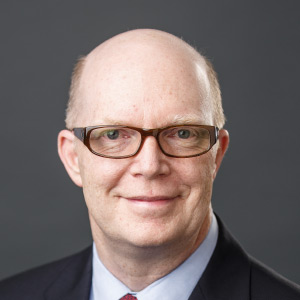"Everybody wants something for nothing," Grandpa Simpson, patriarch of the television cartoon family, once complained to a sidewalk panhandler. Without missing a beat, Grandpa then stepped into his local Social Security office and impatiently shouted, "I’m old. Gimme, gimme, gimme!" (Cartoon pundits apparently aren’t afraid of being deluged with mail from irate AARP members.)
Cynicism about Social Security has hardly abated in the years since Simpson’s ironic outburst. A famous 1994 poll sponsored by Third Millennium, a group that promotes awareness of national issues affecting post-Baby Boomers, reported that more adults 18 to 34-years-old believed UFOs exist (46 percent) than believed Social Security will exist when they retire (28 percent). That was no fluke.
In Third Millennium’s 1999 survey, conducted last January, more adults believed a pro wrestler would be elected president (52 percent) than that they would collect all the Social Security money to which they were "entitled" (39 percent). Good news for Governor Jesse Ventura; not-so-good news for Grandpa Simpson.
Even Social Security’s perceived legitimacy stands on shaky ground these days. In the 1994 poll, only seven percent of respondents thought the elderly were getting more than their "fair share" of government benefits. In the 1999 poll, however, a plurality of respondents opposed Social Social’s entitlement status. An astounding 49 percent viewed Social Security as a privilege, gift, rip-off or something else, compared to 47 percent who called it a "right." What impresses is not the narrow two percent lead of the anti-entitlement sentiment, but that this sentiment has become so common, so quickly.
Many Americans even disapprove of government efforts to educate them about personal finance. A plurality of respondents (40 percent) agreed with the statement, "It is simply not the government’s responsibility to educate people about personal financial issues." That’s not just hot air; Americans are increasingly taking their financial lives into their own hands. Judging by the growing popularity of Individual Retirement Accounts, and books and web sites devoted to personal finance, financial self-responsibility is becoming downright fashionable.
It is tempting to think of this trend as retro, a return to the days before the welfare state, when as Archie and Edith Bunker sang, "everybody pulled his weight." Although this generalization is mostly true, entitlement reformers should note that even nineteenth-century America did not always live up to this ideal.
When, in the 1870s, Indianapolis abolished public welfare -- "outdoor relief" as it was called -- private charities quickly stepped in, but the seeds of financial self-reliance failed to germinate. Ironically, private charities may have helped too much. According to economist Stephen Ziliak of Bowling Green State University, by the end of the transition, private charities were spending just as much money as the city had spent on aid, and recipients were spending the same length of time on the dole as before. If welfare dependency occurred under public assistance, it continued even after private charity took over.
Another example comes from the earliest U.S. experiment with partial "privatization" of pensions. In 1800, Congress authorized the investment of the U.S. Navy pension (disability) fund in corporate securities in search of higher returns than were available from government bonds. When some of those companies faltered, explains North Carolina State University management professors Robert L. Clark, Lee A. Craig and Jack W. Wilson in the spring issue of The Independent Review, Congress shifted the loss to taxpayers, rather than pension recipients.
These two chapters in American history suggest the virtue of financial self-reliance cannot be taken for granted. Rather, like freedom itself, it must be safeguarded with eternal vigilance. Without articulate and consistent advocates, it remains vulnerable to what Ziliak calls "the contradiction of compassion" or to political temptations to favor well-organized interest groups at the expense of taxpayers as a whole.
President Clinton is in a unique position to, as he might put it, "start a dialogue" on financial self-responsibility. By opting out of government Social Security in favor of a self-funded private retirement plan of his choice, he would set a good example for other public figures to follow. Although Grandpa Simpson will, for obvious reasons, need to be grandfathered into the present system, those who can shake the entitlement mentality -- and many of those who can’t, including the worst abusers of corporate welfare -- can be appropriately nudged.
Future historians would probably look quite favorably on such an overture, much as today’s historians look favorably on Nixon’s outreach to China. But if our leaders fail to voice and practice the tenets of self-responsibility, future generations will be condemned to coast on borrowed capital, borrowed illusions and, ultimately, borrowed time.










